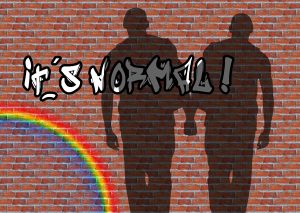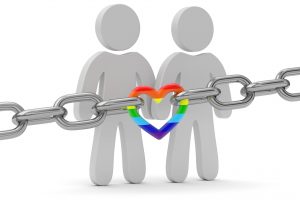
The online gaming industry has undergone a significant transformation in recent years, with inclusivity becoming a cornerstone of modern casino platforms. As more players from diverse backgrounds seek entertainment online, the demand for safe, welcoming, and discrimination-free gaming environments has never been higher. All-inclusive casinos represent a new standard in the industry—one where every player, regardless of their background, identity, or experience level, can enjoy a fair and respectful gaming experience.
An all-inclusive casino goes beyond simply accepting players from different countries. It creates an environment where diversity is celebrated and every individual feels safe and respected. This includes implementing strong anti-discrimination policies, offering diverse payment methods, providing multilingual support, and ensuring that marketing materials represent a wide range of people.
True inclusivity also means prioritizing player safety. When searching for the safest online casinos in Canada, players should look for platforms that hold proper licensing, use encryption technology, and maintain transparent policies about responsible gaming. Safety and inclusivity go hand-in-hand—a casino that protects all its players equally is one that understands the value of creating a welcoming space.
Gaming should be accessible to everyone, but unfortunately, not all online platforms have historically embraced this principle. Discrimination, whether based on gender identity, sexual orientation, race, or socioeconomic status, has no place in the modern gaming industry. According to research from the Williams Institute at UCLA, LGBTQ+ individuals often face unique challenges in various aspects of life, including access to services and fair treatment—and online gaming is no exception.
Organizations like COAVP work to ensure that vulnerable communities, including LGBTQ+ individuals, have access to safe spaces both online and offline. Understanding how COAVP protects LGBT communities provides valuable context for why inclusive gaming environments matter. When casinos actively work to prevent discrimination and harassment, they create better experiences for everyone.
Safety is paramount in any online environment, and casinos are no exception. All-inclusive platforms incorporate multiple layers of protection:
Just as online dating safety tips help protect people in digital social spaces, understanding safety practices in online gaming can prevent negative experiences and protect vulnerable players.
Despite progress, discrimination still exists in some online gaming spaces. Players may encounter prejudice in chat rooms, face unfair treatment from customer service, or see marketing that excludes certain groups. Recognizing these issues is the first step toward addressing them. Confronting prejudice requires specific strategies and awareness. When players experience or witness discrimination, reporting it to the platform is crucial. All-inclusive casinos take these reports seriously and have protocols in place to investigate and address concerns promptly.
The gaming industry continues to evolve, with inclusivity becoming not just a moral imperative but also a business advantage. Casinos that welcome all players and create safe, respectful environments are seeing increased loyalty and positive reputations.
Future developments in inclusive gaming may include:
When choosing an online casino, players should prioritize platforms that demonstrate genuine commitment to inclusivity and safety. Look for casinos that:
All-inclusive casinos and slots represent the future of online gaming—a future where everyone, regardless of who they are or where they come from, can enjoy fair play, exciting entertainment, and the chance to win in a safe and welcoming environment.
 Being a minority has never been easy, no matter when in history or where in the world. Whether you’re a black person in early 20th century US, a Christian in a conservative part of the Middle East or, well… A queer or trans person almost anywhere in the world. Unfortunately, while times change, human nature does not, and while hundreds of thousands of people across the globe are actively working towards pro-LGBT laws and legislations, it might take us another generation until gay, lesbian, bi, queer and trans folk is completely accepted without any sort of prejudice. And until then, the burden of staying safe unfortunately falls on us. We can’t teach small-minded homophobes not to be hateful and discriminating, so we need to teach each other how to protect ourselves should we face some sort of danger.
Being a minority has never been easy, no matter when in history or where in the world. Whether you’re a black person in early 20th century US, a Christian in a conservative part of the Middle East or, well… A queer or trans person almost anywhere in the world. Unfortunately, while times change, human nature does not, and while hundreds of thousands of people across the globe are actively working towards pro-LGBT laws and legislations, it might take us another generation until gay, lesbian, bi, queer and trans folk is completely accepted without any sort of prejudice. And until then, the burden of staying safe unfortunately falls on us. We can’t teach small-minded homophobes not to be hateful and discriminating, so we need to teach each other how to protect ourselves should we face some sort of danger.
It’s human nature to assert superiority over others, especially when it comes to knowledge and information. Just tell any sci-fi nerd that your favorite “Star Trek” movie is the one where Luke destroys the second Death Star and watch them implode from within with a tirade about how thoroughly wrong you are. Unfortunately, this type of impulse – to stand up and speak up when we perceive something as wrong – is present in most of us, to a certain extent, and while it has definitely helped out A LOT of people over the years, it has also definitely placed more than enough in unnecessary danger.
To get a little bit more concrete, let’s just say this – depending on how open you are with your gender identity and sexuality, people will most likely judge you. If you’re trans, or simply a gay lady who likes to dress masculine, or a gay man that can appreciate a nice shade of pink (as he should, since pink is stylish af), sooner or later you’ll encounter some whispers about yourself. You’ll hear murmurs containing slurs and offensive language. You’ll see people staring at you. The urge to stand up, confront those people and call them out on their behavior may be strong, but unlike what Tumblr tells you, no, if you do so nobody will clap and/or give you $100. At the very least you’ll go through a draining verbal confrontation, and at worst you might suffer actual physical abuse (especially if you’re a trans woman – a minority which has very regularly suffered at the hands of others.
 And the worst part is that you won’t even change someone’s mind about yourself. If anything, you’ll only be confirming their own prejudiced thoughts. After all, in their minds, YOU are the one who attacked THEM. They’ll never agree that they did anything wrong at all, so there’s no real benefit to confronting them at all. You’d only be putting yourself at risk. If you overhear whispers, ignore them. If a business is refusing to serve you, agree – they don’t deserve your monetary support. If you think that there’s a chance that you might be in actual danger, do your best to leave if at all possible. No, it’s not fair at all, but in real life, it’s better to be safe rather than morally right. Of course, with all that said, sometimes you absolutely SHOULD listen to the voice in your head telling you to step in and say something. If you see another person being harassed or attacked (regardless of whether they’re LGBT or not), you most definitely should step in and say something. Sometimes, the act of interfering alone is enough to scare off attackers. And yes, if somebody is actively and directly harassing you, and there’s no chance for you to remove yourself from the situation, definitely stand your ground, especially if you can get some help.
And the worst part is that you won’t even change someone’s mind about yourself. If anything, you’ll only be confirming their own prejudiced thoughts. After all, in their minds, YOU are the one who attacked THEM. They’ll never agree that they did anything wrong at all, so there’s no real benefit to confronting them at all. You’d only be putting yourself at risk. If you overhear whispers, ignore them. If a business is refusing to serve you, agree – they don’t deserve your monetary support. If you think that there’s a chance that you might be in actual danger, do your best to leave if at all possible. No, it’s not fair at all, but in real life, it’s better to be safe rather than morally right. Of course, with all that said, sometimes you absolutely SHOULD listen to the voice in your head telling you to step in and say something. If you see another person being harassed or attacked (regardless of whether they’re LGBT or not), you most definitely should step in and say something. Sometimes, the act of interfering alone is enough to scare off attackers. And yes, if somebody is actively and directly harassing you, and there’s no chance for you to remove yourself from the situation, definitely stand your ground, especially if you can get some help.
The most important thing, however – in any situation – is ensuring that you’re physically safe. It hurts overhearing other people calling you a freak or an abomination and discussing how you’ll be going to Hell. But a knife to the side hurts a lot more. Please exercise caution and don’t pick any fights that can be feasibly avoided.
 There’s no doubt that we live in literally the best age for dating ever. Just a few hundred years ago, your spouse was more or less whoever your parents chose for you, and if you were born in a family of even remotely noble standing (as in, anyone who doesn’t work in the fields all day), then you can just forget ever being romantically happy, especially if you were gay. Today, however, in most of the world you can date whoever you want! Boys, girls, neither, the only thing restricting your romantic partners are your own sexuality and preferences. Hundreds, if not thousands of potential dates are literally only a click away. Keep swiping left until you find the person of your dreams, and then hope they swipe right on you! And who knows, maybe sooner or later you’ll find the one you’re destined to spend the rest of your life with, even if it’s on a site for casual hook-ups like Grindr.
There’s no doubt that we live in literally the best age for dating ever. Just a few hundred years ago, your spouse was more or less whoever your parents chose for you, and if you were born in a family of even remotely noble standing (as in, anyone who doesn’t work in the fields all day), then you can just forget ever being romantically happy, especially if you were gay. Today, however, in most of the world you can date whoever you want! Boys, girls, neither, the only thing restricting your romantic partners are your own sexuality and preferences. Hundreds, if not thousands of potential dates are literally only a click away. Keep swiping left until you find the person of your dreams, and then hope they swipe right on you! And who knows, maybe sooner or later you’ll find the one you’re destined to spend the rest of your life with, even if it’s on a site for casual hook-ups like Grindr.
Unfortunately, online dating comes with its own set of risks, and its own measures that need to be taken to ensure safety. While these risks aren’t exclusive to the LGBT community, a lot of them are increased if you don’t exactly identify as straight or cis. And while hopefully you’ll never, ever need to actually rely on these security measures, having them in place “just in case” is always a great idea. Regardless of who you are, regardless of who you’re dating, there’s ALWAYS risk involved, so why take it when you can minimize it? Let’s take a closer look at some preparations you can make to ensure your date has a happy ending no matter what!
First and foremost, before you’ve even met your date, it’s really important to be honest, for both of you. Absolutely run the pictures that the person has on their profile through Google’s reverse image search – if any of them come back, it’s likely that the person isn’t who they claim they are. If there’s any doubt at all, feel free to request a picture that can’t possibly be found online (for example, of them touching the tip of their nose). Everyone’s got a camera on their phone these days, and if they claim they can’t take the picture for whatever reason, don’t meet them! If the pictures on the profile check out, and there’s no reason to be concerned, at the very least ask them for their real name and try looking them up, see if you’ll find something that might raise a red flag.
 Of course, that honesty extends to you as well. By all means make sure to provide your own name and pictures. After all, your potential date is likely having the very same concerns you are! In addition, it’s important to let them know if you’re trans. This information doesn’t have to be on your public profile, obviously, but if you’re seriously considering meeting a person in real life for a date, then the fact that you’re not cis is something they should absolutely be aware of. Not all men are attracted to trans women, and similarly, a lot of straight women aren’t into trans guys. That’s not transphobic, it’s just a sexual preference that we have no control over. And if you claim or imply to be a cis woman while you’re trans, chances are that the date isn’t really going to go well once you do meet – hell, a lot of people who would’ve been fine with dating a trans person if warned beforehand might feel deceived or lied to when they figure it out on the spot. And worst of all, you might end up in physical danger, if you happen upon a disgruntled guy who actually IS transphobic. So be honest and tell your potential partner everything they should know before meeting them, while expecting the same treatment.
Of course, that honesty extends to you as well. By all means make sure to provide your own name and pictures. After all, your potential date is likely having the very same concerns you are! In addition, it’s important to let them know if you’re trans. This information doesn’t have to be on your public profile, obviously, but if you’re seriously considering meeting a person in real life for a date, then the fact that you’re not cis is something they should absolutely be aware of. Not all men are attracted to trans women, and similarly, a lot of straight women aren’t into trans guys. That’s not transphobic, it’s just a sexual preference that we have no control over. And if you claim or imply to be a cis woman while you’re trans, chances are that the date isn’t really going to go well once you do meet – hell, a lot of people who would’ve been fine with dating a trans person if warned beforehand might feel deceived or lied to when they figure it out on the spot. And worst of all, you might end up in physical danger, if you happen upon a disgruntled guy who actually IS transphobic. So be honest and tell your potential partner everything they should know before meeting them, while expecting the same treatment.
Of course, that may not necessarily be enough. sometime you might find yourself in actual, physical danger regardless of the circumstances – some people of both genders believe that they’re entitled to either your money or your body, regardless of what was agreed upon beforehand, and they won’t take no for an answer. So make sure that you’ve got a friend on stand-by who you can call to bail you out of the situation as soon as possible. In addition, there are apps and services that track your phone’s GPS, so in case you end up drunk, drugged or worse, you can send a text to a friend with access to your phone’s location and request a pick-up, even if you’ve got no clue where you are. Again, these are just extreme case scenarios, but it’s better to have the necessary security measures in place and not need them than to absolutely need them and not have them. They could potentially save you from something really terrible.
 Most of us LGBT folk have been there at one point or another. We’ve just discovered that we’re not like other people, sexually speaking. We like the same gender, or we feel like we are the opposite gender or no gender at all, or sometimes we just can’t even properly explain it or classify it, but we know for a fact that words like “cis” or “straight” don’t define us. But what do we do now? Friends can’t know about this, they’ll make fun of us! The family must DEFINITELY not be told, because what are they even gonna think?! We want to explore this side of ourselves, we want to know more about it, but the world all of a sudden becomes a terrifying, overwhelming place. You hear your grandma talk about gay people as if they’re vermin, you hear your friends at school make transphobic jokes, you hear strangers on the bus whispering, and all the while all you want to do is disappear.
Most of us LGBT folk have been there at one point or another. We’ve just discovered that we’re not like other people, sexually speaking. We like the same gender, or we feel like we are the opposite gender or no gender at all, or sometimes we just can’t even properly explain it or classify it, but we know for a fact that words like “cis” or “straight” don’t define us. But what do we do now? Friends can’t know about this, they’ll make fun of us! The family must DEFINITELY not be told, because what are they even gonna think?! We want to explore this side of ourselves, we want to know more about it, but the world all of a sudden becomes a terrifying, overwhelming place. You hear your grandma talk about gay people as if they’re vermin, you hear your friends at school make transphobic jokes, you hear strangers on the bus whispering, and all the while all you want to do is disappear.
Unfortunately, as welcoming and friendly as the LGBT community is, sometimes, for whatever reason, people – especially those who are still coming to terms with their sexuality and discovering their new identity – don’t feel like embracing it and becoming part of it just yet. Or even when they do, sometimes there’s questions that one may not feel entirely comfortable asking. That’s why we’re here. This blog is dedicated to offering tips and advice to LGBT folk everywhere in order to ensure that they remain safe in a world that, while admittedly growing less hostile towards them every year, can still remain a frighteningly toxic place. We’ll NEVER ask you for a registration or identification, and we’ll never record your IP or any sort of personal data. We only ask one thing – that you remain safe. Hopefully the articles on this blog will help answer some questions and concerns that you never felt comfortable asking others.